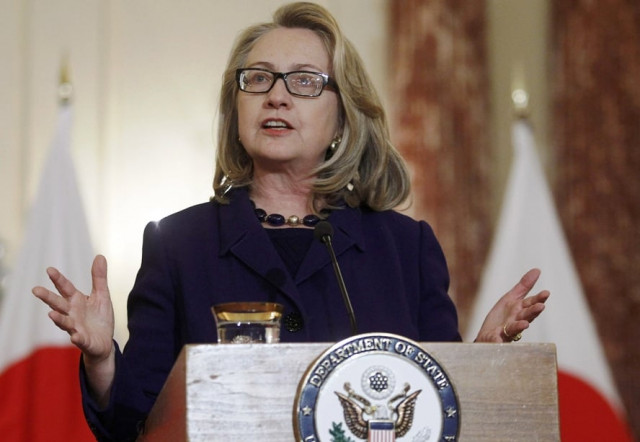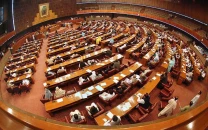Fresh revelation: Hillary’s aides pushed for action against Pakistan
Advisers called for tougher stance towards Islamabad

The email exchanges took place during a wrenching Obama White House debate over sending more US troops to Afghanistan. PHOTO: REUTERS
The advisers didn’t work for Obama’s White House, however. They were veterans of president Bill Clinton’s administration and they peppered Obama’s secretary of state, Hillary Clinton, with messages urging a robust counter-insurgency effort in Afghanistan and a tougher US stance toward Pakistan, according to emails released by the State Department late on Tuesday.
The emails reveal how, even as Obama ran a highly formalised Afghan policy review of near-endless meetings and position papers, Hillary Clinton was receptive to outsiders’ sometimes off-the-cuff views delivered through back-channels.
In one missive on Oct 11, 2009, retired Gen. Wesley Clark, a confidant of the Clintons, warned against repeating in Afghanistan the ’incrementalism’ of gradual troop increases during the Vietnam War.
Others in the Clintons’ orbit weighed in with similar advice, including former national security adviser Sandy Berger.
On Oct 3, Berger emailed Clinton with a provocative proposal: the United States should take targetted measures against officials in Pakistan, nominally a US ally, who support al Qaeda.
There’s no evidence Berger’s idea gained traction. But on a trip to Pakistan later that month, Clinton came close to accusing Pakistan of sheltering terrorists.
The email exchanges took place during a wrenching Obama White House debate over sending more US troops to Afghanistan.
Published in The Express Tribune, July 3rd, 2015.



















COMMENTS
Comments are moderated and generally will be posted if they are on-topic and not abusive.
For more information, please see our Comments FAQ